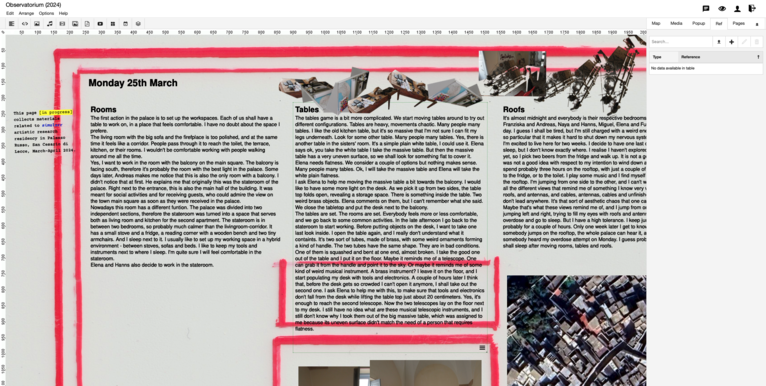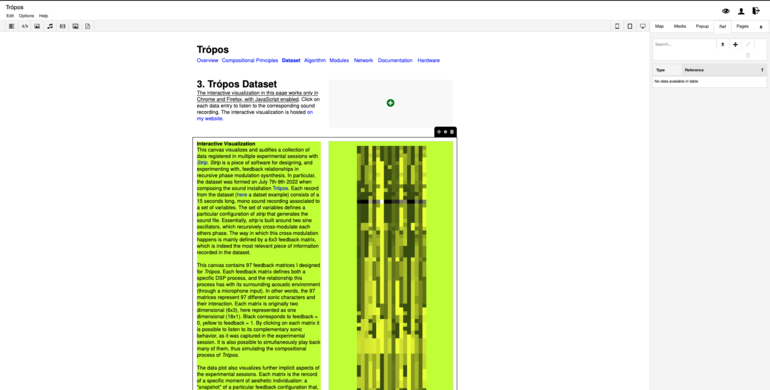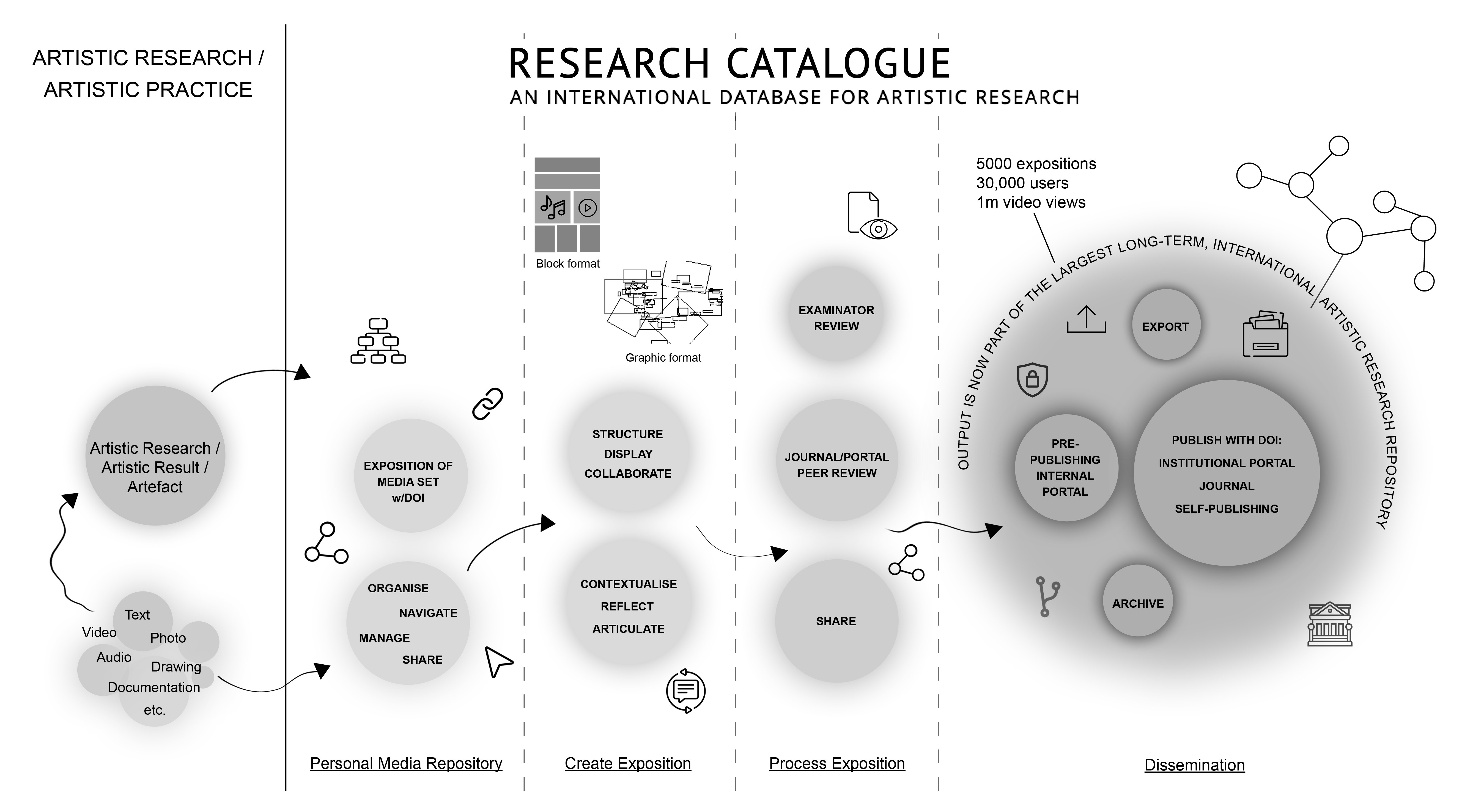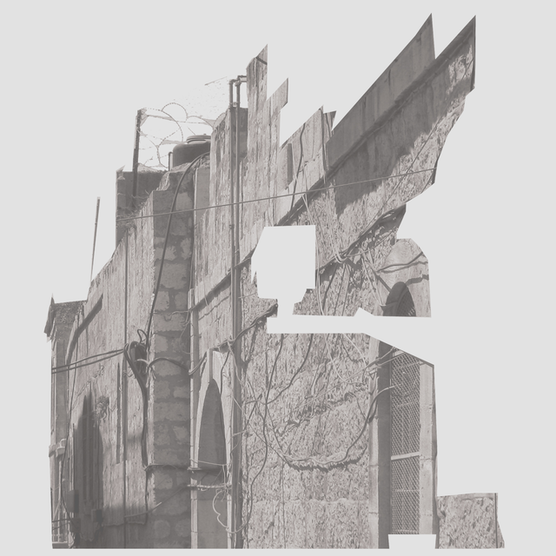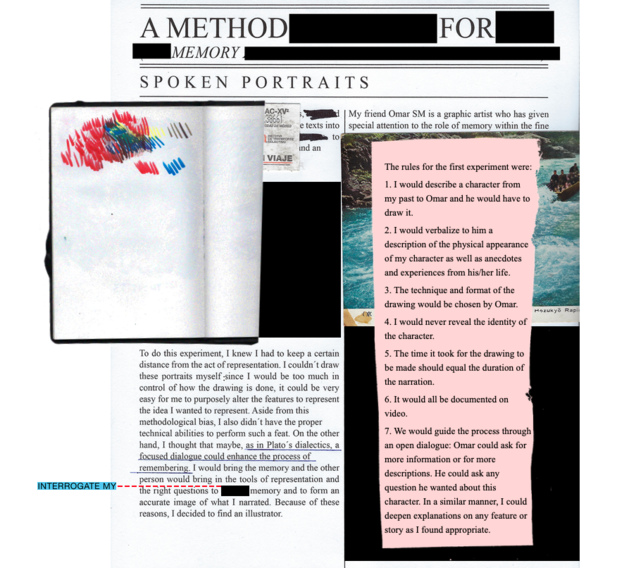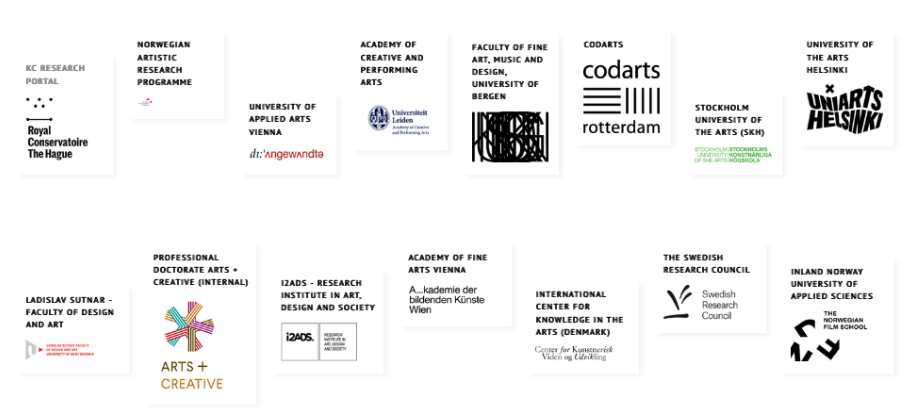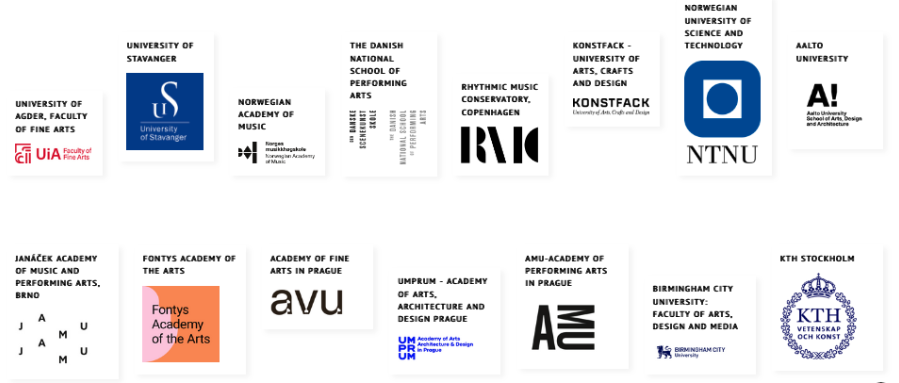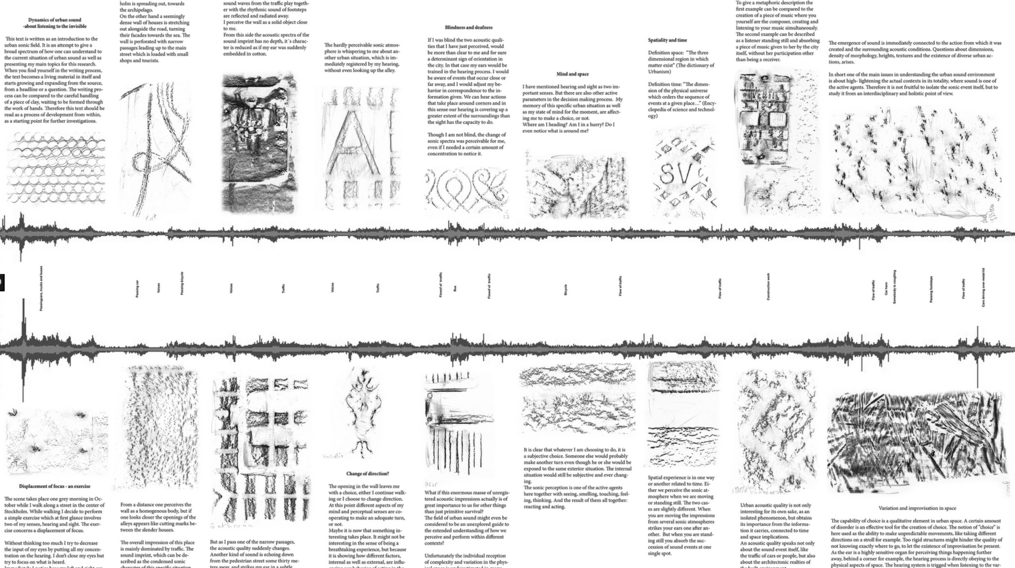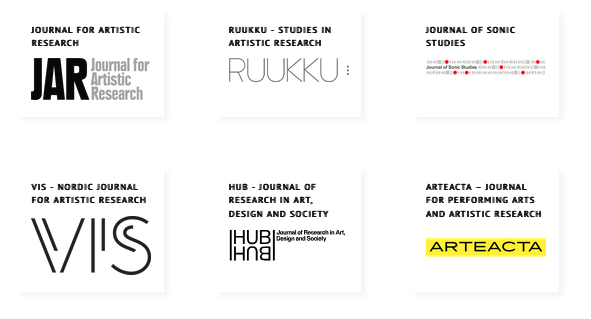Expositionality
Expositions allow to overcome traditional mode of academic writing to include:
- Exposure. In the RC, research aspects of works are exposed shifting an emphasis or highlighting particular aspects.
- Staging. In the RC, artistic work is staged as research; staging implies that the form of the work is transformed into a ‘stage form’ that performs its research contribution.
- Performance. Like ‘staging’, ‘performance’ indicates the utilisation of a register of presentation and the creation of an experience. Translation. An artwork is translated into the language of the Research Catalogue; form and elements of the work shift, whilst meaning is conveyed.
- Reflection. What is invested in the work is reflected upon through additional ideas and concepts potentially ‘dormant’ in the work that increase its relevance and/or understanding, which is reflectively transformed.
- Unfolding. A research aspect is unfolded as other folds are created when the work is entered into the Research Catalogue.
- Exhibiting. As exhibition, a Research Catalogue entry does not represent an artwork but its context dependant publication.
- Curating. Content is arranged in such as a way as to open up meaning between pieces of visual, acoustic or textual information.
Integrated Editors / Media Repo
- personal media repository
- 5 different editors
- real-time collaboration
Exposition Samples
Jacek Smolicki (2021) - Minuting. Rethinking the Ordinary Through the Ritual of Transversal Listening,
in VIS - Nordic Journal for Artistic Research, Issue 5.
DOI: https://doi.org/10.22501/vis.883787 Metadata: https://www.researchcatalogue.net/profile/show-exposition?exposition=883787
Emilio Angel Reyes Bassail (2019) - Memory as a Method for Filmmaking,
in Journal for Artistic Research, Issue 19.
DOI: https://doi.org/10.22501/jar.648128
Nina Hällgren (2019) - Designing with Urban Sounds,
Licentiate Thesis in Architecture, KTH Stockholm.
URL: https://www.researchcatalogue.net/view/264750/264751/900/2500
Leibetseder, Grill, Schilling, Bovermann (2022) - Fragments in Time,
in VIS - Nordic Journal for Artistic Research, Issue 7.
DOI: https://doi.org/10.22501/vis.1283942
Hanns Holger Rutz (2025) - Rogues, in progress.
Network / Community
- more than 40 institutions across Europe
- SAR newsletter / announcement service (reaches more than 30000 users)
- special interest groups
- RC portal partner meetings / SAR conference
Useful Links
- RC extended guide: https://guide.researchcatalogue.net/
- RC video tutorials: https://www.researchcatalogue.net/view/273532/1685164
- RC quick start guide: https://www.researchcatalogue.net/RC%20Quick%20Start%20Guide.pdf
RC supports teaching and research in institutions:
- institutional repositories/archives, displayed within an international research environment
- software solution for online rich media journals, such as RUUKU, Journal for Sonic Studies, VIS and Journal for Artistic Research
- a teaching/learning platform on research activities, where both the supervision and the examination takes place within the RC
- a research management module for handling research funding application within a closed portal
RC supports individual research:
- open source
- non-commercial
- large and relevant audience (more than 30000 registered users)
- no setup cost
- no maintenance (KTH's IT-department Stockholm)
- unique format possibilities
- free of charge for individuals
Journals / Publication
- 7 journals
- institutional portals
- self-publication
Outline:
- Presentazione formato: exposition samples
- Perche usare RC: network, community, publication, sharing
- RC workflow / ecosystem: contestualizzare / condividere la propria ricerca a diversi livelli
- Demo pratica
Il Research Catalogue e’ una piattaforma pensata e sviluppata da/per gli artisti-ricercatori. Il formato della Exposition e’ stato concepito per favorire la presentazione di approcci alla ricerca in cui la pratica artistica assume un ruolo centrale.
